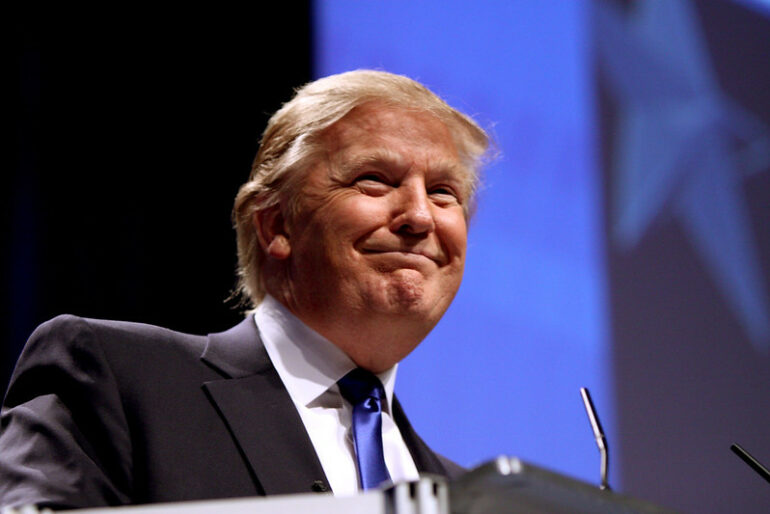President Donald Trump on Thursday reportedly invoked a little-used presidential power to cancel nearly $5 billion in foreign aid and peacekeeping funds, marking the first time in almost half a century that such a maneuver has been attempted.
The president notified Congress late in the day that he would move forward with what is known as a “pocket rescission,” a budgetary tactic that allows a president to present a funding clawback so late in the fiscal year that lawmakers have virtually no opportunity to block it.
The maneuver, according to exclusive reporting from the New York Post, has not been attempted since 1977.
The aid package in question—originally bound for nonprofits and foreign governments—had been tied up in litigation until the D.C. Circuit Court of Appeals lifted an injunction earlier on Thursday. That decision cleared the way for Trump to act, striking billions from the spending pipeline.
The targeted funds include $3.2 billion in USAID development assistance and nearly $838 million earmarked for international peacekeeping. Among the specific allocations identified by the administration as examples of wasteful spending are $24.6 million for “climate resilience” projects in Honduras, $2.7 million for the South African Democracy Works Foundation, and $3.9 million to promote LGBT democracy initiatives in the Western Balkans.
The legality of the move has already come under scrutiny. The Government Accountability Office (GAO), Congress’s internal watchdog, has argued for decades that pocket rescissions are illegal under the 1974 Impoundment Control Act, which placed limits on a president’s ability to withhold or block spending.
But Trump officials point to historical precedent. Office of Management and Budget (OMB) Director Russ Vought and former White House General Counsel Mark Paoletta have previously noted that Presidents Gerald Ford and Jimmy Carter used the same tool in the 1970s.
Paoletta, who served as White House counsel during Trump’s first term, went further, charging that the GAO only hardened its stance against the practice during Trump’s tenure because of political animus. He claimed the watchdog agency was acting out of what he described as “Trump Derangement Syndrome.”
Whether the GAO will take further action remains unclear. As the Post noted, it is the only body with standing to sue over the maneuver, though ongoing legal challenges to the GAO’s own constitutional standing could complicate such a step.
Even as the White House framed the move as a strike against waste and a defense of American taxpayers, some in Washington issued stark warnings. Punchbowl News founders John Bresnahan and Jake Sherman cautioned that Trump’s gambit could “lead to a shutdown” when Congress reconvenes to address government funding next month.
For now, the president has succeeded in reviving a rarely used budgetary power to halt billions in foreign commitments.
Supporters say the cancellations reflect a necessary course correction after years of unchecked international spending, while critics see a legal gamble that could ignite yet another clash between the executive branch and its watchdogs.
[READ MORE: Hegseth Axes Obama Era Programer That Favored Chinese Coders]



